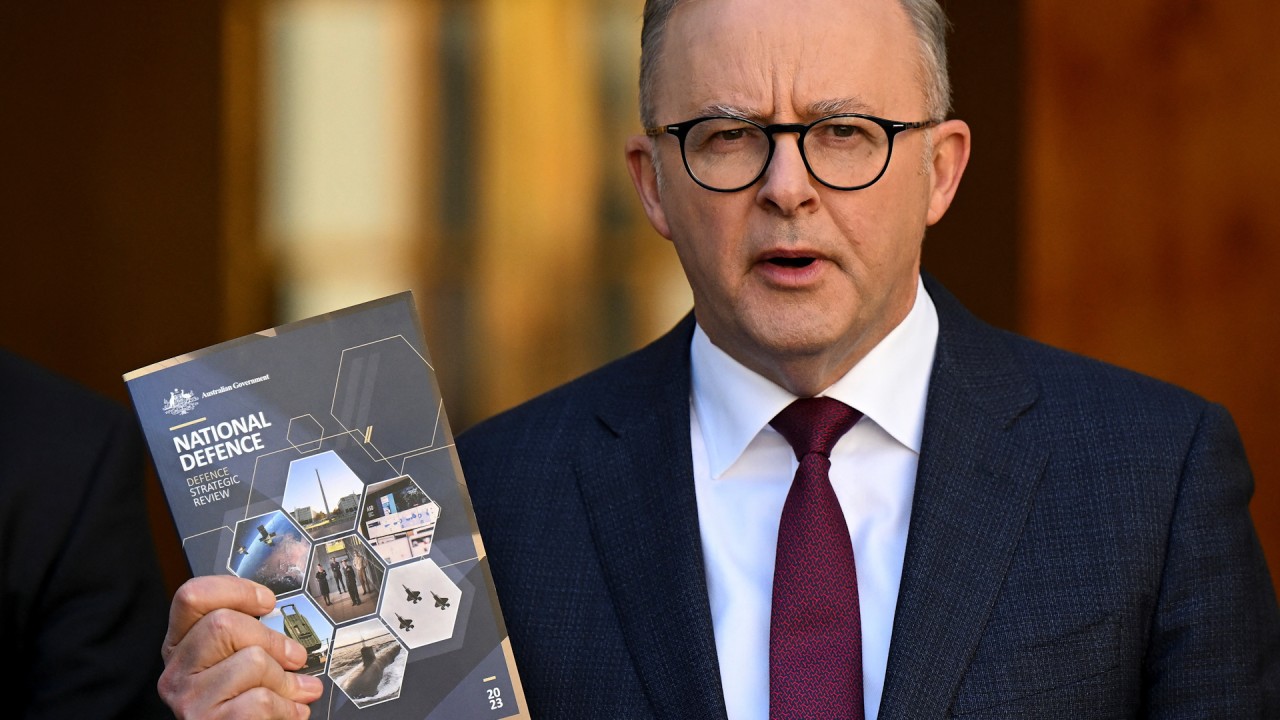
Australia’s Albanese sounded the wrong note with his US-friendly tone at the Shangri-La Dialogue
- Stripped of platitudes, Albanese’s speech aligned with the US concept of regional peace
- However, there was no acknowledgement of the legitimacy of any of China’s responses to the obvious attempts to contain its development
Apparently, peace and stability, complete with “guardrails”, could be achieved by working to support US objectives. Albanese said that “if one nation imagines itself too big for the rules, or too powerful to be held to the standards that the rest of us respect, then our region’s strategic stability is undermined and our individual national sovereignty is eroded”.
There was no doubt the remarks were directed at China, not the United States, as he suggested no change to the stance and approach taken by the Americans.
Stripped of the platitudes about Australia’s support for the region’s desire for peace and prosperity, Albanese’s speech was an agreement with the US concept of what this peace and prosperity should look like.
There was no acknowledgement of the legitimacy of any of China’s responses to the obvious attempts to contain its development. Instead he said a call for guardrails did not amount to a policy of containment or placing obstacles in the way of any nation’s progress or potential.
In offering no criticism of American activity in the region, Albanese’s keynote address made it clear that China would gain legitimacy only if it complied with the conditions of the rules-based order as defined by the US.
It seemed that China’s legitimate interests were confined to the territorial waters inside the 12-nautical-mile limit while the legitimate interests of the United States and Australia encompassed all of the South China Sea and the Indo-Pacific.
How are China-Australia trade relations faring after 3 years of ups and downs?
This was a proposition not met with enthusiasm by others around the table. Singapore’s acting prime minister, Lawrence Wong, said Southeast Asia did not want to be forced to pick sides in the region. “No one wants to be in a position where we have to either contain China’s rise or limit America’s presence,” he said. “Any move in either direction will have few takers in the region because no one in Asean wants to see a new cold war.”
Albanese said his government had “put dialogue at the heart of our efforts to stabilise our relationship with China”. He also said: “In boosting our nation’s defence capability, Australia’s goal is not to prepare for war but to prevent it – through deterrence and reassurance and building resilience in the region.”
It is clear from Albanese’s keynote address where Australia stands and where it expects regional organisations to stand. “Multilateral institutions are essential to writing the rules and keeping them relevant,” he said, while giving no indication of opposition to China’s exclusion from many of these rule-setting forums. His acknowledgement of the importance of groups such as Asean seemed conditional on their consistency with US objectives.
But, beyond that, the Australian prime minister stumbled in setting the tone for the Shangri-La Dialogue with an address that was so supportive of the assertion of US primacy in the region.
Daryl Guppy is an international financial technical analysis expert and a former national board member of the Australia China Business Council. The views expressed here are his own


